Procedures and Forms for Non-Legal Victim Service Providers
If you are currently a non-legal victim service provider accessing services from the Victim Services Interpreter Bank, please refer to these procedures to familiarize yourself with how to access services through the Victim Services Interpreter Bank.
CLIB One Pager
For a breakdown of the services offered through the Community Legal Interpreter Bank and basic information on how to access each of them, download this one-pager.
As a current non-legal victim service provider, you have access to specially-trained, in-person interpreters working in the following languages:
- American Sign Language (includes Certified Deaf interpreters)
- Amharic
- Arabic
- French
- Korean
- Mandarin
- Moroccan Arabic
- Russian
- Spanish
- Swahili
- Tigrinya
- Ukrainian
- Vietnamese
You can access a telephonic interpreter in almost any language, including the 13 languages mentioned above.
Procedures
SalesForce
Step-by-Step Guide on using Salesforce to request an interpreter.
Services
Instructions on how to access all services, including live interpretation.
Telephonic Interperter
Instructions for how to access a telephonic interpreter.
Victimization Guide
Victimization Categories Guide (for telephonic and in-person interpreter requests).
Procedures
Procedures for submitting document translation requests.
Victim Data Collection Guide
Victim Data Collection Guide (explanation on how to collect data).
Forms
ASL Interpreter Requests
Form for submitting live American Sign Language interpreter requests.
Translation Request Form
Form for submitting translation and interpreter requests.
For instructions for how to access a video remote interpreter see below.
Additionally, you may request translation of documents that do not pertain to a particular client but could be needed in the future. For instance, you may translate outreach materials that will be widely disseminated. You may also proactively translate client forms (such as retainer agreements) that you expect to need in various languages to work with DC residents or people with legal matters in DC.
If you would like to provide feedback on your experience working with one of our in-person interpreters, you can complete our interpreter complaint form.
Interpreter Complaint Form
How to Use Video Remote Interpreting
As of January 2018, we are using InSight Video Remote Interpreting.
InSight Updates for 2018
InSight Network Specifications
InSight Technical Requirements
For PC Users:
Installation Instructions
How to Use InSight on Your PC
For iPad Users:
Installation Instructions
How to Use InSight on Your iPad
Tips
You may make translation requests for documents that do not pertain to a particular client or patient. For instance, you may translate outreach materials. You may also proactively translate client/patient forms (such as consent forms) that you expect to need in various languages in order to work with victims of crime in DC.
If you have questions about accessing the services of the Victim Services Interpreter Bank or cannot find the form that you are looking for, please contact [email protected].
Additional Resources
Best Practices for Working with an Interpreter

